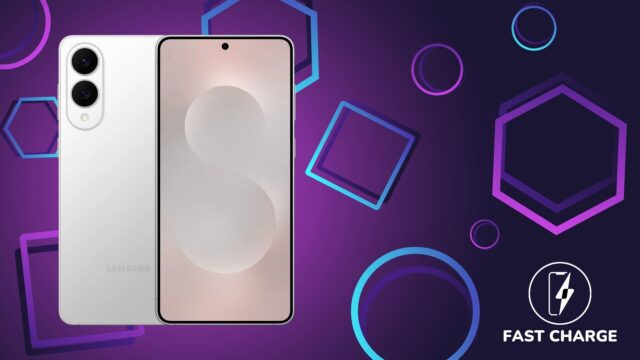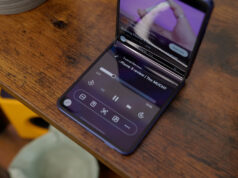Of the vast array of phones I’ve used and reviewed throughout 2025, the Samsung Galaxy S25 Edge remains one of the most memorable.
Yes, the Xiaomi 15 Ultra has fantastic cameras, Honor’s Magic V5 offers the slimmest foldable to date, and the OnePlus 13 offers a frankly massive battery – but there’s something about the Samsung Galaxy S25 Edge that just feels more exciting.
And, yes, I know that Apple’s new iPhone Air is even thinner, but as a primarily Android user, it’s great to have an Android-based alternative.
Well, it was great to have an Android alternative anyway, because apparently, there won’t actually be a Galaxy S26 Edge if news coming out of South Korea is correct. And that could be a massive mistake.
Rumoured poor sales shouldn’t guide Samsung’s decision
According to a new report from South Korean outlet Newspim, Samsung has decided to drop the development of the Samsung Galaxy S26 Edge following poor sales of this year’s Galaxy S25 Edge.
The publication claims that the Galaxy S25 Edge has only sold 1.31 million units compared to the Galaxy S25’s 8.28 million, the S25 Plus’ 5.05 million and the S25 Ultra’s 12.18 million.
What’s more, Samsung is set to halt production of the Galaxy S25 Edge once it goes through all remaining stock.

It’s not just the publication that suggests the S26 Edge has bit the dust either; notable leaker @UniverseIce made a similar claim on X, citing their own independent sources.
Now, I get it. Compared to the rest of the Galaxy S25 range, the S25 Edge isn’t a big seller – but what if Samsung had the same attitude to the first Galaxy Fold? The company only expected 500,000 sales after all – half that of the S25 Edge’s actual sales – and it was never confirmed if Samsung actually hit that target.
If Samsung had given up at the first hurdle, we wouldn’t have the spectacular Samsung Galaxy Z Fold 7 that we have today.
Now, apply that logic to the Galaxy S25 Edge; yes, it has its weaknesses, but imagine just how much it could improve over the next few years – especially if Samsung puts its big boy pants on and adopts silicon-carbon battery tech like the Chinese phone giants.
The S25 Edge was the first of its kind – but no longer
Samsung had a bit of a challenge on its hands with the Galaxy S25 Edge, because simply put, it’s very hard to sell the benefits of an ultra-slim, ultra-light smartphone without physically putting it into the hands of consumers.
To be honest, my opinion of the S25 Edge wasn’t that positive at reveal; why would I want a phone with a tiny battery and no zoom lenses when paying £1099/$1099 for the privilege?


However, upon picking up the phone for the first time, I got it. A reduction of 2mm compared to regular phones might not sound like much on paper, but it makes a lot of difference in the hand.
At 5.8mm thick and 163g, it’s so much lighter, so much thinner and just nicer to use than any other phone I’ve used this year, especially when flagships like the Galaxy S25 Ultra measure in at a comparatively thick 8.2mm and 218g.
Still, Samsung got a lot of flak from the media and influencers alike at launch because, well, it was the first of its kind and, unlike similarly-priced smartphones, didn’t put spec above all else. I can’t imagine that helped sales either.
But now we have the iPhone Air.


As cheesy and cliché as it is to say, once Apple makes a new product, it quickly goes mainstream. Tablets were a niche until the release of the iPad, wearables were pretty basic before the days of the Apple Watch and, well let’s not forget that the iPhone was the first smartphone to popularise multi-point touchscreen displays that didn’t need a stylus.
Just the fact that Apple has made an ultra-slim phone will make more people open to the idea of trading spec for design.
And, compared to the Galaxy S25 Edge, it’s actually less impressive in areas like camera tech and battery life. The iPhone Air has a single 48MP camera compared to Samsung’s combination of a 200MP main and 12MP ultrawide, and its 3900mAh cell is more capacious than Apple’s 3149mAh alternative.


With this new comparison in mind, the Galaxy S25 Edge should be more tempting than ever – not less so, like Samsung is assuming.
Samsung needs to be bold here
Samsung is the Apple of the Android world in that, once it finds a formula that works, it rigidly sticks to it. Just look at its flagship Galaxy S25 collection; the S25 and S25 Plus look very similar to the S23 alternatives, and even share some of the same tech. Even the S25 Ultra, with its redesign, is still a very familiar device in many regards.
In essence, Samsung likes to be comfortable and play it safe. But that’s not what we need with the launch of an entirely new smartphone design.
I think Samsung should stick to the original rumoured plan, which was to ditch the S26 Plus model for the S26 Edge – while also rebranding the regular S26 as the S26 Pro, which is a whole other story.


Why? Besides the fact that the Plus and Ultra are so similar in many regards that the Plus is pretty much moot, we need something to shake up the rather stagnant flagship Galaxy range. And what better way to do that than by offering an ultra-slim alternative for those who don’t need the top-spec experience in every department? Variety is the spice of life, after all.
And, with both the S25 Edge and iPhone Air now in the rear-view mirror, Samsung no longer has the hard sell of an ultra-thin smartphone that it did in 2025.
So, Samsung, I’m begging you; keep at the Edge for a bit longer. I guarantee you’ll reap the benefits.











